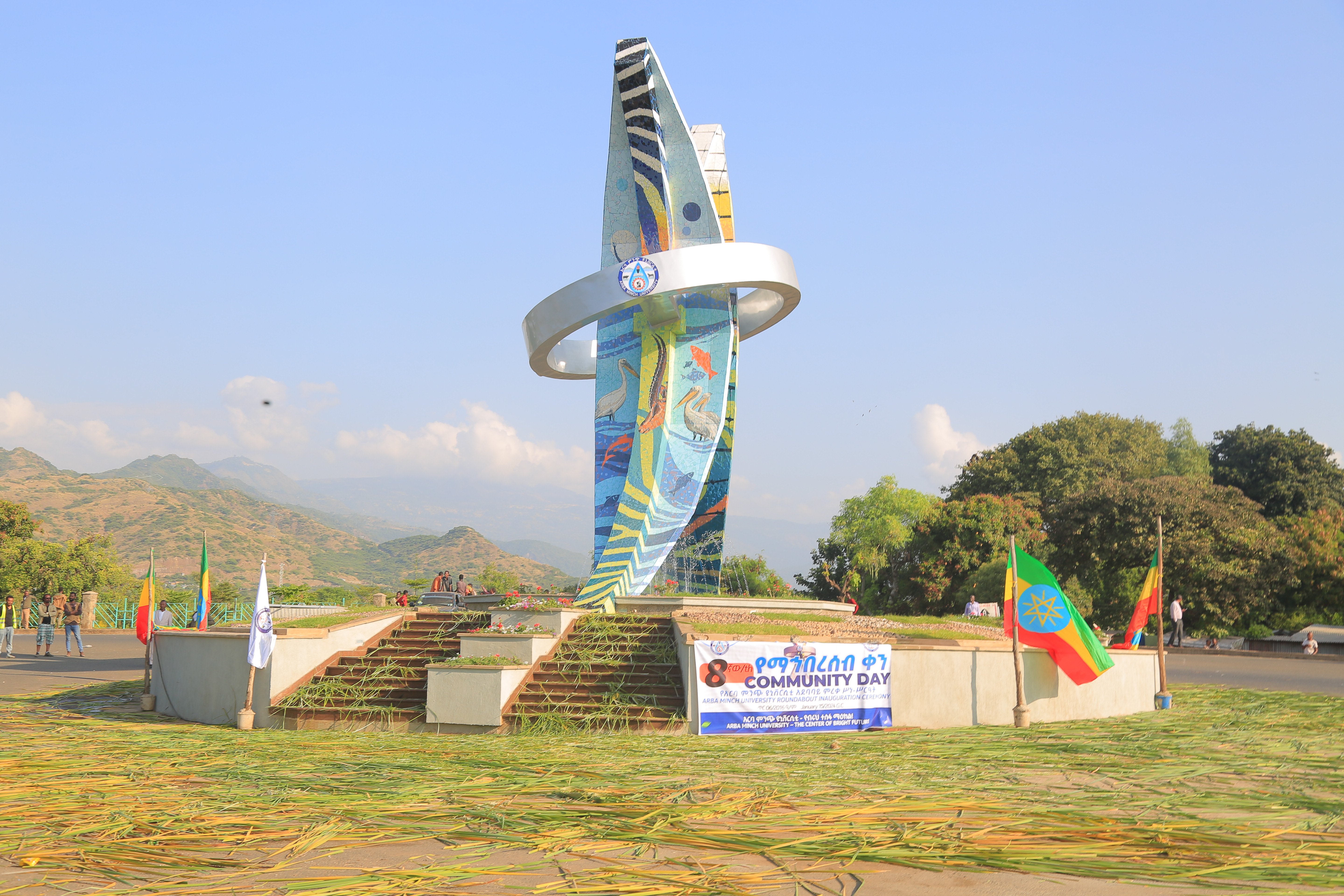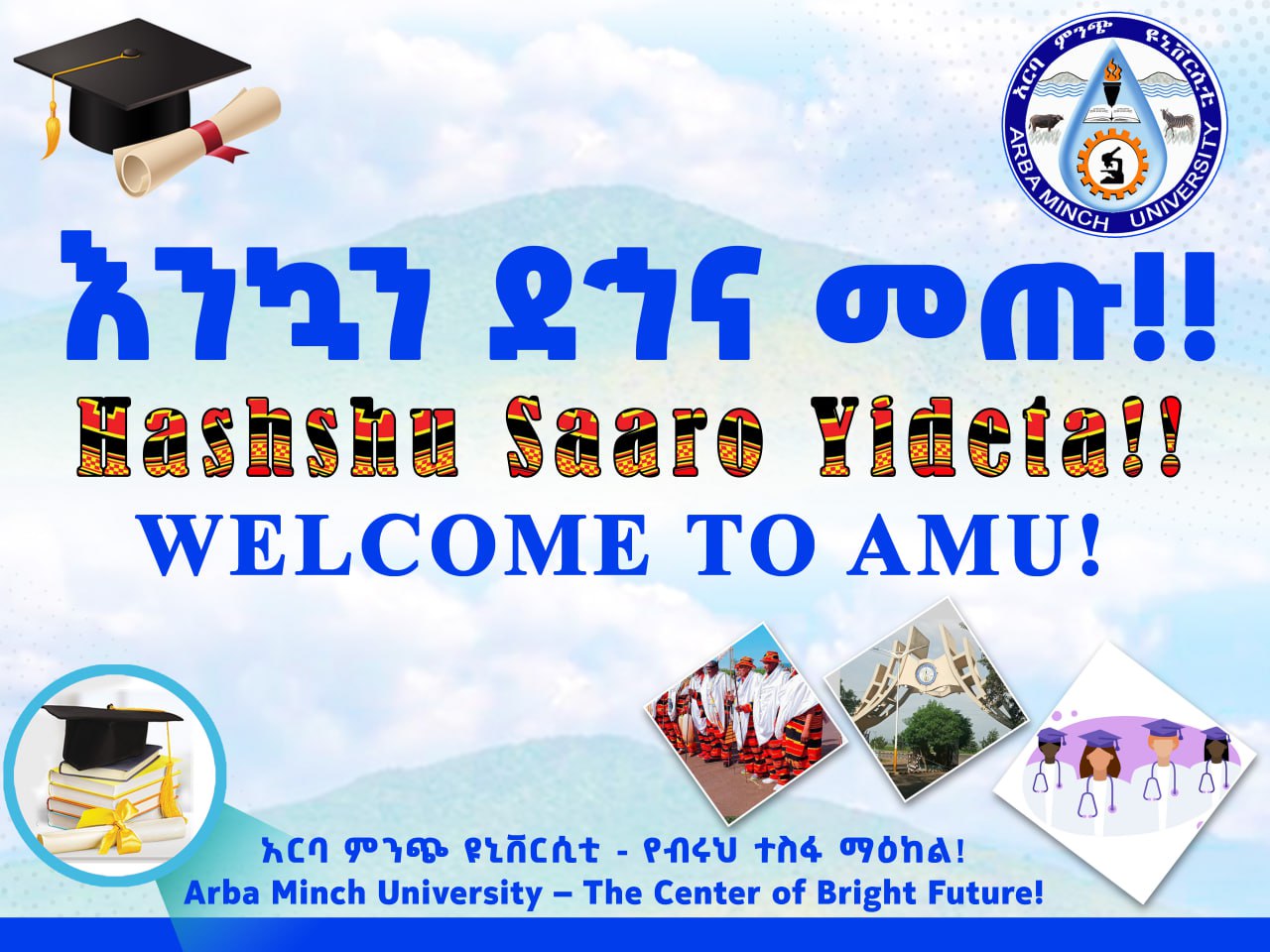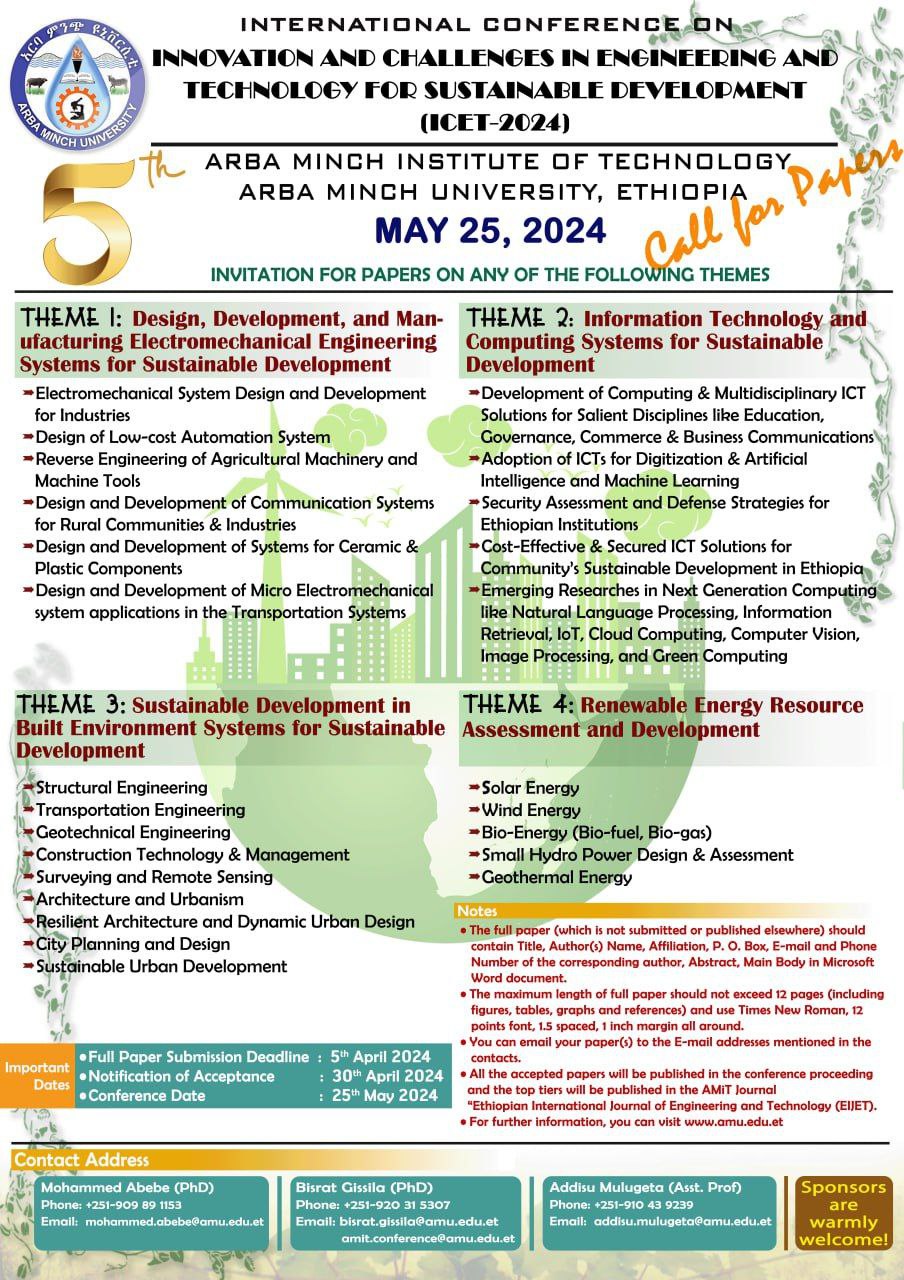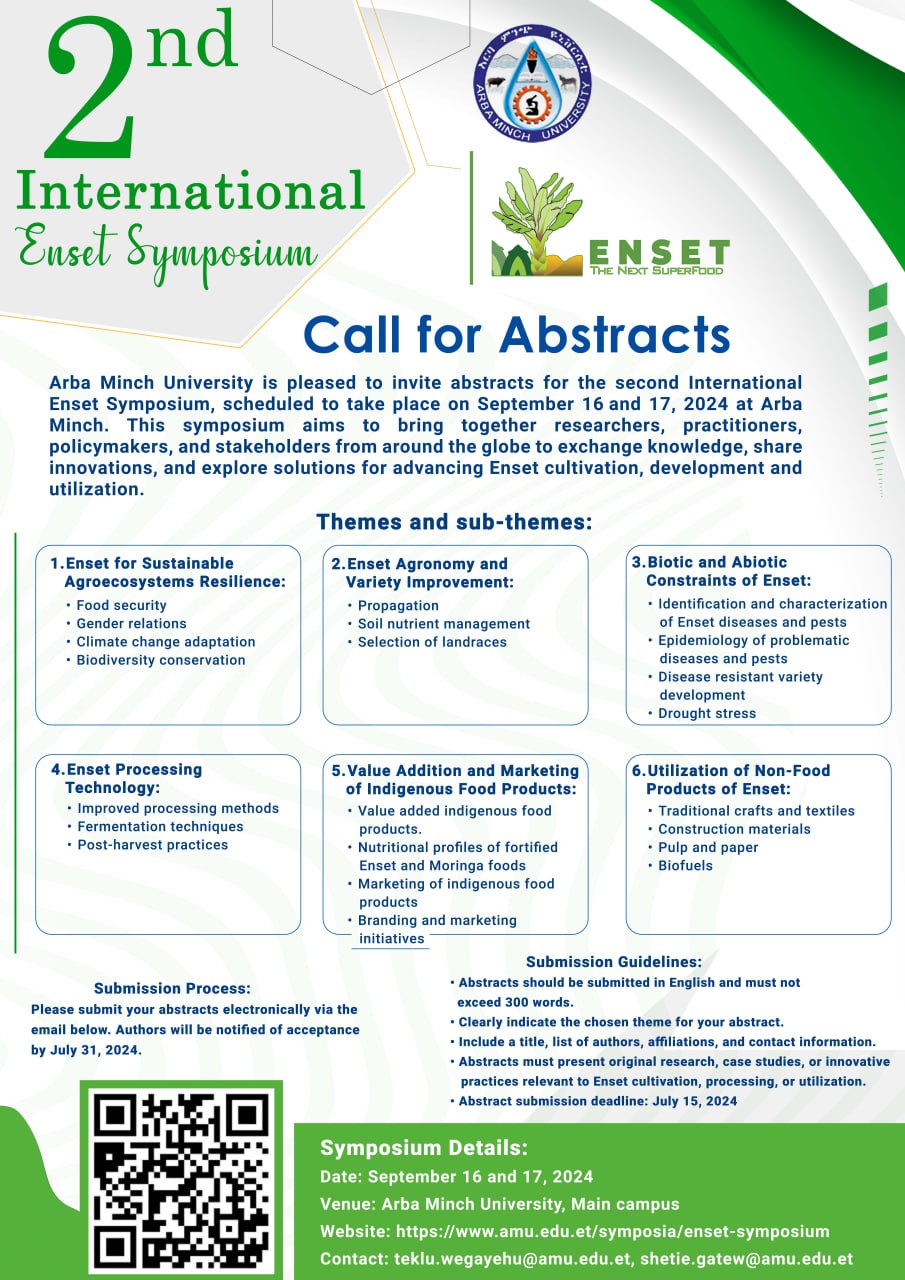Arba Minch University hosted the 9th national research symposium on “Science for Sustainable Development” from 10th to 11th March, 2023. Click here to see pictures.
AMU President, Dr. Damtew Darza, in his opening address said, public universities are working intensively to upgrade the professional quality of academicians and researchers and establishing infrastructure to enhance research works and thereby improve the sustainable development and the livelihood of the society. According to Dr. Damtew, as one of Research Universities, AMU is making structural and system changes to advance and enhance the execution status of research work.
AMU Executive Research Directorate’s Director, Dr. Tesfaye Habtemariam, said that the university collaborates with national and international academia and research institutions in areas of research, capacity building, community engagement, and tech-transfer and adaption. AMU has a rich potential to conduct joint and collaborative research projects in areas of water resource management, aquatic ecology, renewable energy, livestock, highland fruits and vegetables including Enset, watershed and wetland management, neglected tropical diseases, indigenous knowledge and others, he informed. According to Dr. Tesfaye 45 research papers focusing on sustaining scientific solutions were selected from 22 Ethiopian Universities.
Emeritus Professor Endashaw Bekele of Addis Ababa University, delivering his keynote speech said that research should consider environmental, societal, and economic sustainability to meet the needs of the present generation without jeopardizing the fate of the future generation. He adds science and technology advancement has become the key to both economic and military power in the contemporary world; therefore, researchers in Ethiopia should understand the current status of science and technology and the gap that exists.
Ethiopia’s development challenges & opportunities, the new politics & diplomacy of science, academic naivety & plagiarism towards many issues should be re-checked very well, Professor Endashaw underlined. After discussing the rooted problems among Ethiopian researchers and educators, he suggested that the requirement of conscience and deliberate efforts to nurture transformative research leadership to move forward and defend Ethiopia’s interests.
The second keynote speaker, Professor Mitiku Eshetu, from Haramaya University, speaking on “Agrivolatics and its Opportunity for Sustainable Development” said Agrivolatics is an emerging technology that suggests simultaneous use of land for agriculture as food production and photovoltaic power generation. According to Prof. Mitiku, the technology plays a vital role in reducing the use of fossil fuel consumption, increasing global land production, minimizing agricultural displacement for energy production, and it also gives dual advantages for countries like Ethiopia working to meet rural off-grid electrification programs.
Dr. Mende Mensa, from AMU, presenting his finding on “The Current Challenges of the Ethiopian Health Insurance System” tried to review and explore the current challenges of the Ethiopian health insurance system from financial protection, equitable access to medicines, and financial viability of insurance organization perspective. According to the presenter, organizational bankruptcy, adverse selection in the insurance system design, absence of linkage between the insurance system and private medicine outlets, and the presence of high dropout rate and poor financial viability are the major challenges that the health insurance system faces in Ethiopia. Addressing the challenges by involving all relevant stakeholders is critical to ensure a sustainable health insurance system throughout the country, he recommended.
Another presenter, Dr. Zenebe Yirgu, from Wolaita Sodo University, presenting his research finding on “Potential of Local Microalgae for coupling Agro-industrial Wastewater Remediation with Lipid and Bioethanol Production”, said microalgae can be used as a promising resource for combining wastewater remediation and biofuel production. He said, along with his team, they tried to evaluate the potential of local microalgae for industrial wastewater remediation with lipid and bioethanol production. After scientific trials in the laboratory, the study demonstrated that apart from wastewater treatment, the local microalgae have a high potential for bioethanol production, he reported.
Researchers from 22 Ethiopian Universities participated; AMU top and mid-level officials, research and academic staff were in attendance.
Arba Minch University
The Center of Bright Future!
Communication Affairs Directorate
